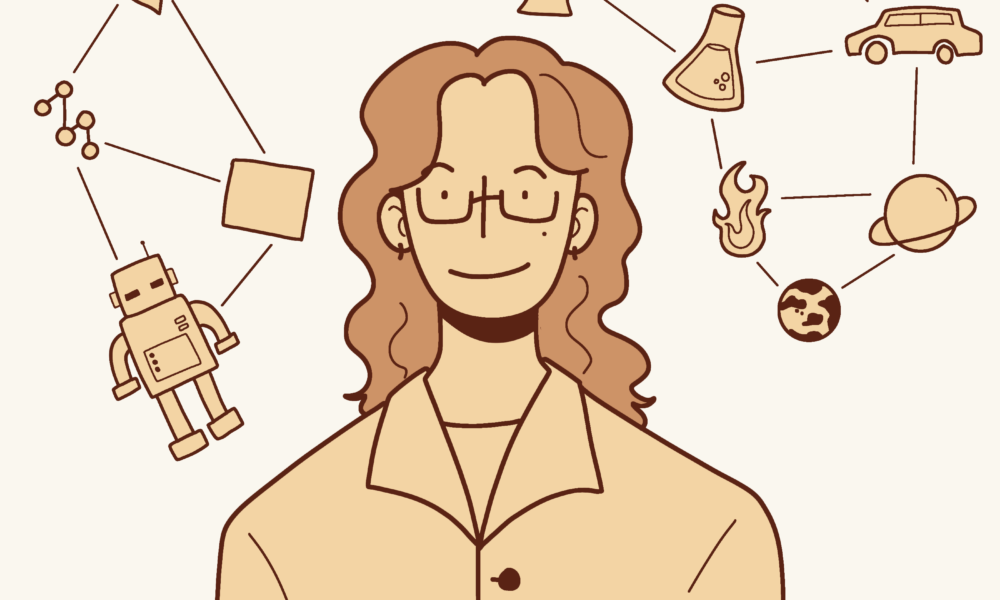In the evolving landscape of science and technology, women in engineering are driving innovation and shaping the future of the field. Despite progress in gender equality in STEM, women continue to face unique challenges, such as overcoming stereotypes about gender roles and underrepresentation in certain fields.
To gain insight into the experiences of women, I conducted interviews with female engineering students at McGill, exploring their journeys, the challenges they have faced, and the figures who have inspired them.
Pursuing a Passion For Engineering
Each student’s journey into engineering was driven by a different passion or interest.
Yara, U2 Engineering, appreciated the versatility of her degree.
“I like the broadness of the degree, and I can go into any industry after,” Yara explained in an interview with The Tribune.
For Julia, U1 Engineering, the support she recieved from her sister was crucial.
“My sister is a big inspiration for me. She is three years older and she always told me it would be hard but it would be worth it in the end, and you will be accomplished in your life,” Julia said in an interview with The Tribune.
A second-year master’s student studying Architecture was drawn to the field by her desire to address environmental concerns.
“What encouraged me to pursue this field [was] the environmental challenges in the field and what we could do to help with those. It gave me a purpose of being there and fighting the climate crisis,” this student shared in an interview with The Tribune.
Challenges Faced by Women in the Field
The students acknowledged the challenges they face in engineering as women. Andra, U2 Engineering, pointed out the lack of female representation in her program.
“I noticed that a lot of professors in my program are mostly men, and there is very little female representation,” Andra said in an interview with The Tribune.
While representation remains a concern, the students also shared more personal, everyday forms of bias.
“Sometimes I find myself being underestimated or questioned by other men in my program,” Julia explained.
These experiences highlight the subtle yet impactful ways in which societal gender dynamics can play out in academic settings.
Finding Support and Community
The significance of building a supportive and positive community was a common theme among the students. Yara noted the importance of connecting with women in the field.
“I usually feel more comfortable talking to the other girls in my classes, we try to help each other out because we all know it can be tough to be a woman in engineering,” Yara said.
Interestingly, the master’s student shared that she did not feel outnumbered in her architecture classes, which contrasts with her experiences in other engineering fields.
“In architecture, there are actually a lot of girls, so I did not feel outnumbered in my classes,” she said. Her experience highlights the variation in gender balance across different engineering disciplines.
Role Models and Inspirations
Role models play a significant role in motivating and guiding these students through a male-dominated field.
“Professor Tufenkji has done a lot of work for empowering women in engineering, which I thought was amazing,” Andra said.
The master’s student shared that she also found inspiration in her professors. “Naomi Keena is doing research on the circular economy and building life cycles. I had her in my first year of my graduate program and she was great.”
Advice for Aspiring Women Engineers
The students offered valuable advice for other women considering a career in engineering. “Don’t be intimidated and just do it! It is going to be okay,” Julia added.
Adrea highlighted the importance of time management in pursuing an engineering career. Meanwhile, the master’s student focused on perseverance.
“My advice would be to believe in yourself and believe in your dreams. I think we can achieve anything we want to achieve,” she said.
Lastly, Yara emphasized the importance of finding community.
“You will find a lot of girls just like you and make friends to get through it together,” she explained.
The stories shared by female students at McGill demonstrate that, although challenges exist, so do opportunities for growth, learning, and leadership. By sharing their experiences, the women contribute to a community of support and inspiration, shaping a more inclusive and innovative future in engineering.








